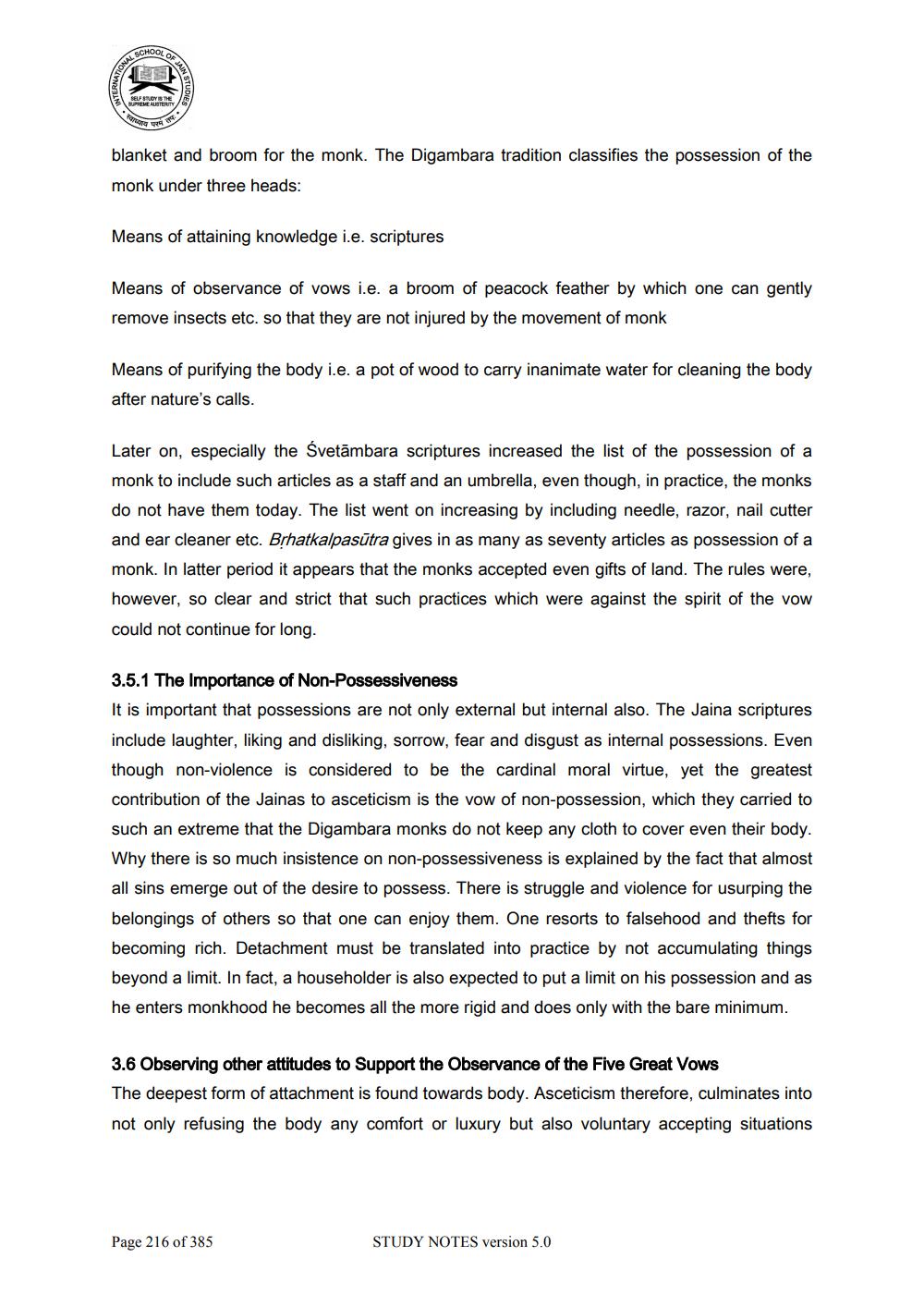________________
UDIES
याय परम
blanket and broom for the monk. The Digambara tradition classifies the possession of the monk under three heads:
Means of attaining knowledge i.e. scriptures
Means of observance of vows i.e. a broom of peacock feather by which one can gently remove insects etc. so that they are not injured by the movement of monk
Means of purifying the body i.e. a pot of wood to carry inanimate water for cleaning the body after nature's calls.
Later on, especially the Śvetāmbara scriptures increased the list of the possession of a monk to include such articles as a staff and an umbrella, even though, in practice, the monks do not have them today. The list went on increasing by including needle, razor, nail cutter and ear cleaner etc. Brhatkalpasūtra gives in as many as seventy articles as possession of a monk. In latter period it appears that the monks accepted even gifts of land. The rules were, however, so clear and strict that such practices which were against the spirit of the vow could not continue for long.
3.5.1 The Importance of Non-Possessiveness It is important that possessions are not only external but internal also. The Jaina scriptures include laughter, liking and disliking, sorrow, fear and disgust as internal possessions. Even though non-violence is considered to be the cardinal moral virtue, yet the greatest contribution of the Jainas to asceticism is the vow of non-possession, which they carried to such an extreme that the Digambara monks do not keep any cloth to cover even their body. Why there is so much insistence on non-possessiveness is explained by the fact that almost all sins emerge out of the desire to possess. There is struggle and violence for usurping the belongings of others so that one can enjoy them. One resorts to falsehood and thefts for becoming rich. Detachment must be translated into practice by not accumulating things beyond a limit. In fact, a householder is also expected to put a limit on his possession and as he enters monkhood he becomes all the more rigid and does only with the bare minimum.
3.6 Observing other attitudes to Support the Observance of the Five Great Vows The deepest form of attachment is found towards body. Asceticism therefore, culminates into not only refusing the body any comfort or luxury but also voluntary accepting situations
Page 216 of 385
STUDY NOTES version 5.0




